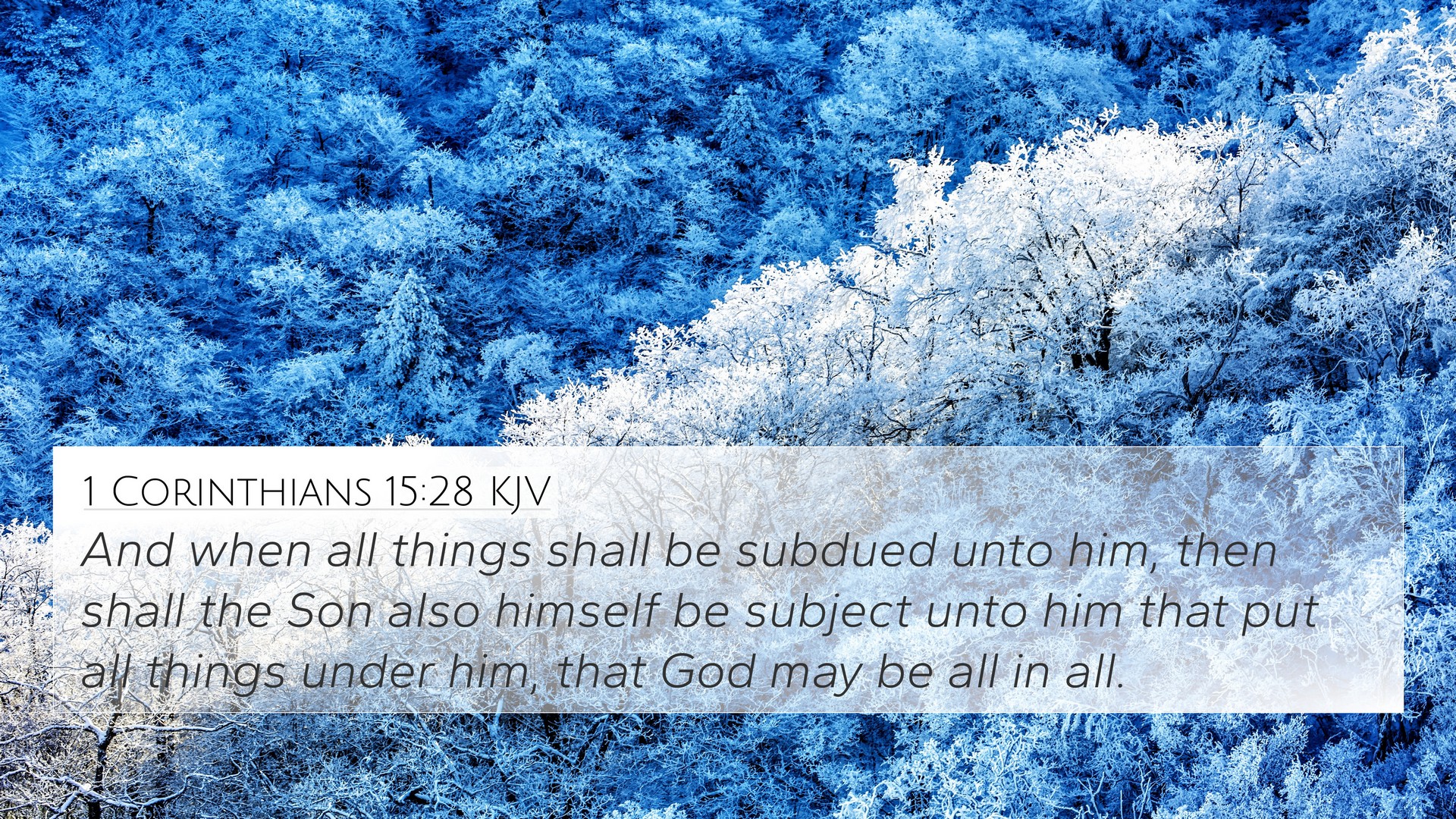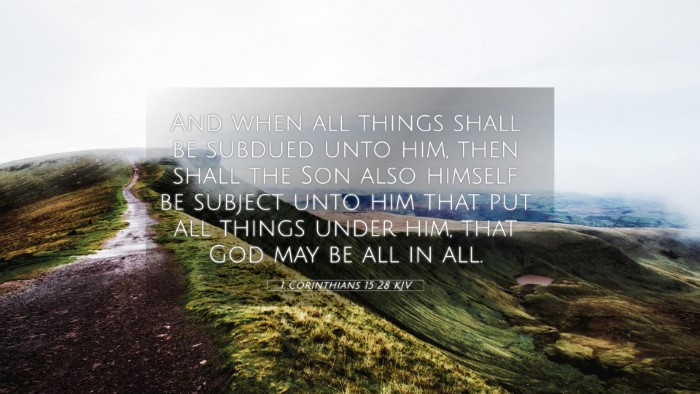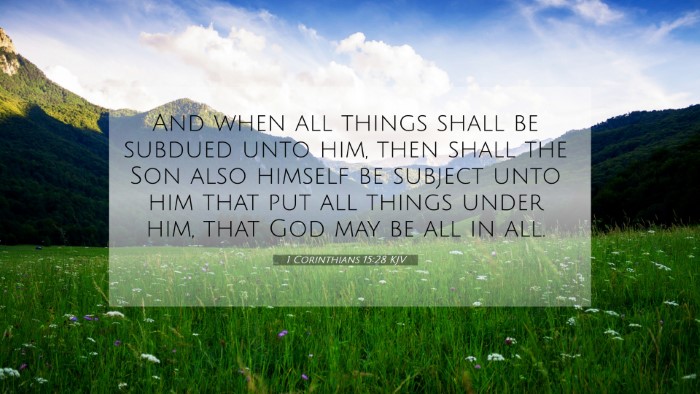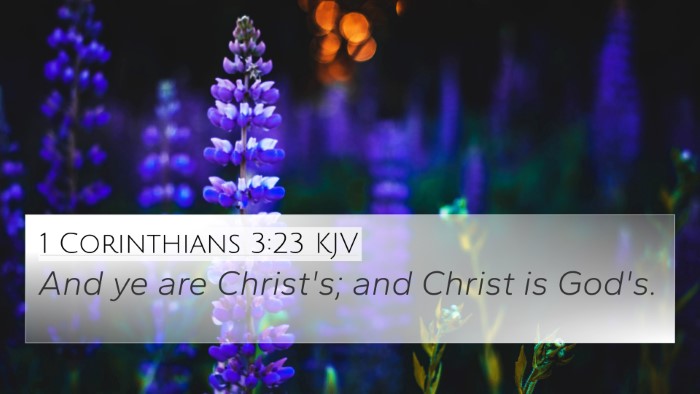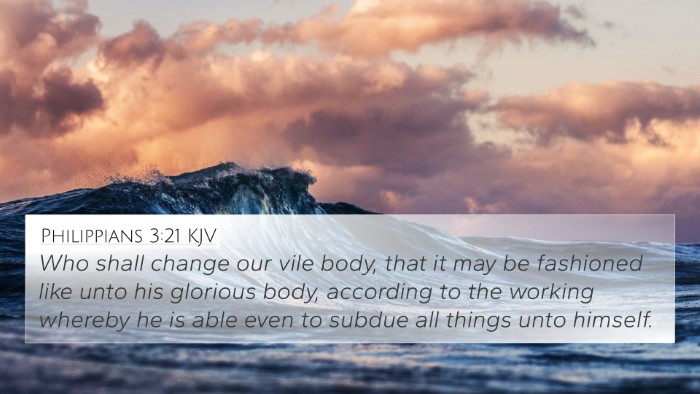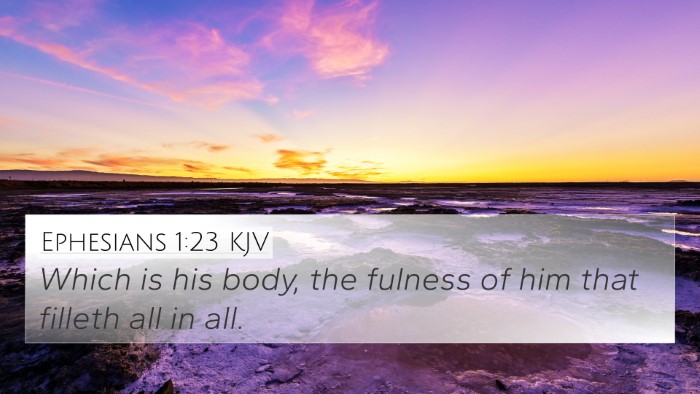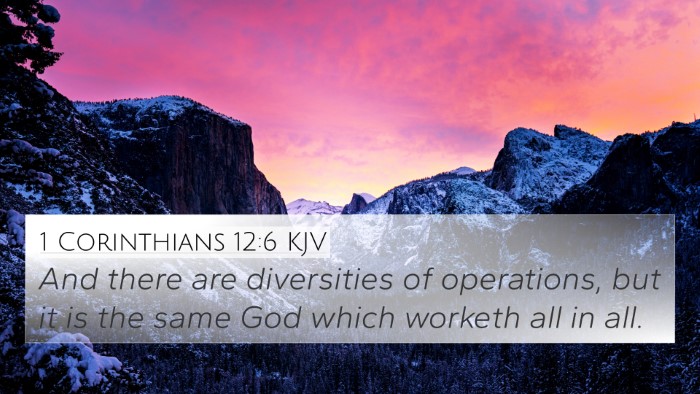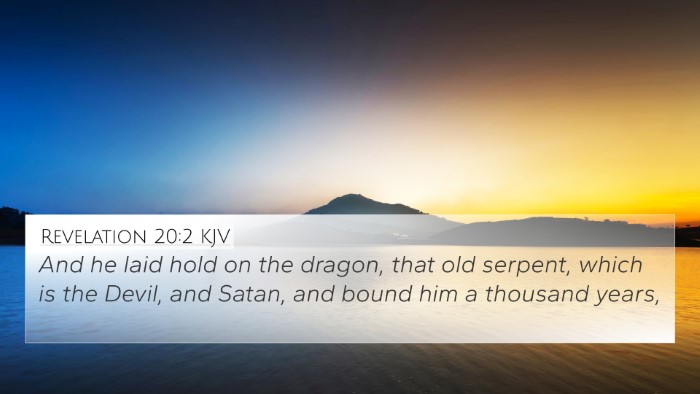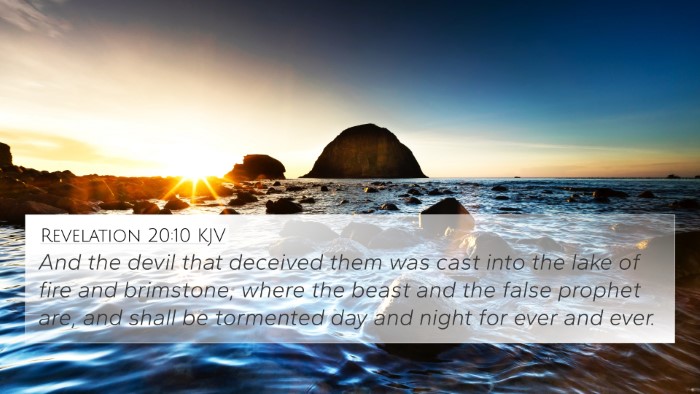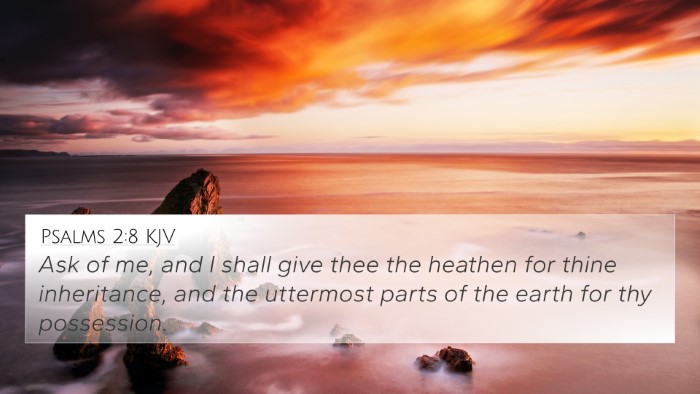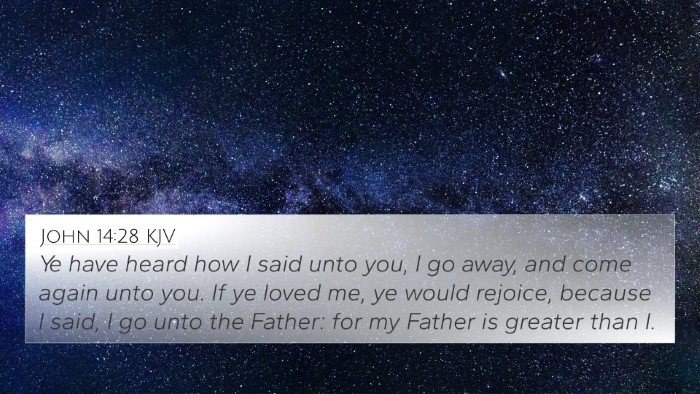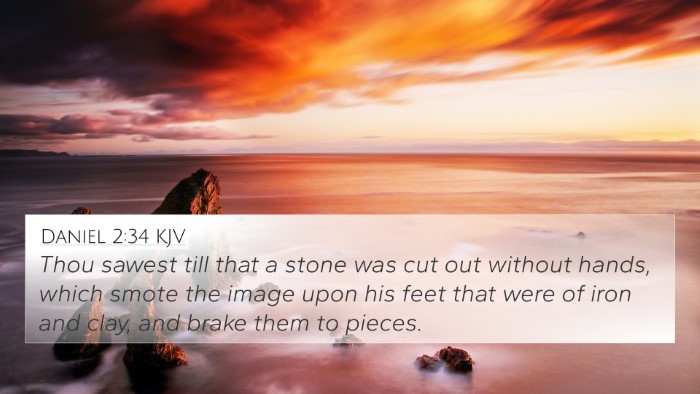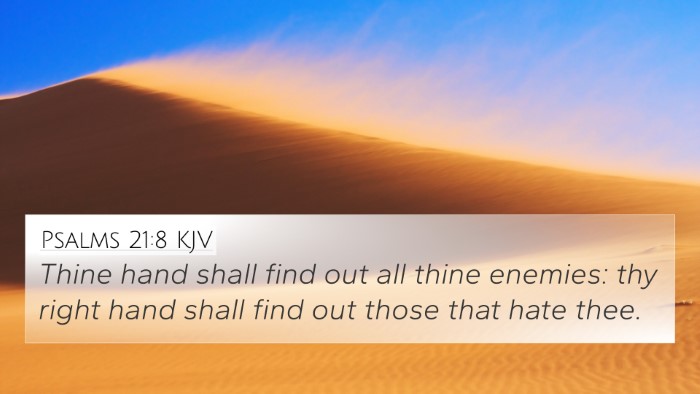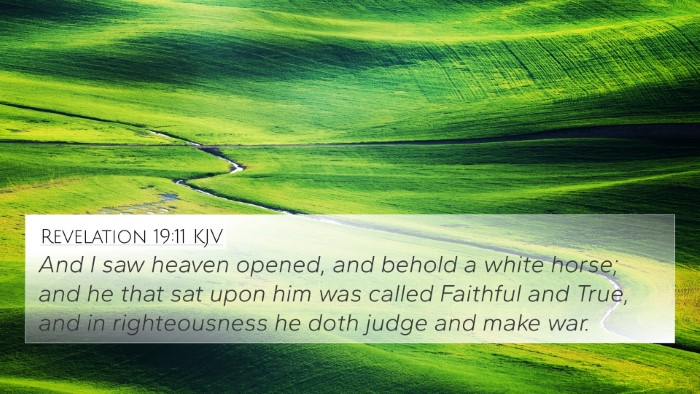Understanding 1 Corinthians 15:28
Verse: 1 Corinthians 15:28 - "And when all things shall be subdued unto him, then shall the Son also himself be subject unto him that put all things under him, that God may be all in all."
This verse encapsulates a profound theological statement regarding the relationship between God the Father, Jesus Christ, and the culmination of God's redemptive work. Here we delve into a summary of interpretations drawn from various public domain commentaries.
Summary of Biblical Meaning
The Apostle Paul, in writing to the Corinthians, addresses the ultimate authority and order within the eternal kingdom of God. Let's break down the verse's significance using insights from renowned commentaries.
-
Matthew Henry's Commentary:
Matthew Henry emphasizes the importance of Christ's subjection to the Father post-resurrection. He interprets this as a sign of Christ’s authority being acknowledged and fulfilled, while also asserting the continuous unity and purpose within the Godhead. Christ is shown here to willingly submit to God, reflecting both His divine nature and His role in the eternal plan of salvation.
-
Albert Barnes' Notes:
Albert Barnes focuses on the nature of the subjection mentioned in the verse. He explains that this “subjection” does not imply inequality but highlights Christ's role in the plan of redemption. When everything is made subject to Him, He will hand over the kingdom to God, culminating in a restored creation where God's supremacy is established for all eternity.
-
Adam Clarke's Commentary:
Adam Clarke elaborates on the phrase "that God may be all in all." He proposes that this speaks to the ultimate fulfillment of God’s purposes where every created entity recognizes His sovereignty. Clarke suggests that this reflects a return to the perfect order intended at creation, showing the completeness of God’s plan when Jesus subdues all forces opposed to God.
Bible Verse Cross-References
1 Corinthians 15:28 interacts with several other scripture passages, enriching our understanding through cross-references:
- Philippians 2:9-11: Highlights Christ’s exaltation and the honor given to Him above all names.
- John 14:28: Jesus declares the Father is greater than He, indicating His humility and obedience.
- Ephesians 1:22-23: Discusses God putting all things under Christ's feet, reinforcing His authority.
- Revelation 21:3: Proclaims God dwelling with humanity, illustrating God's final purpose of being 'all in all.'
- Colossians 1:16-17: Affirms Christ’s centrality in creation and His sustaining power, emphasizing His divine authority.
- Romans 11:36: States that from Him, through Him, and to Him are all things, stressing God’s ultimate sovereignty.
- 1 Peter 3:22: Speaks of angels, authorities, and powers being made subject to Christ, connecting to the theme of submission.
Connecting Themes and Insights
This verse demonstrates several interconnected themes. It encompasses the concepts of divine authority, Christ's mediatorial role, and the eventual restoration of all creation under God's sovereignty. Such exploration leads to deeper thematic Bible verse connections, often discussing:
- **The subjunctive nature of Christ's authority** and the acknowledgment of His obedience to the Father.
- **The concept of submission** within the Trinity, which may lead to comparative Bible verse analysis to highlight unity among the three persons of the Godhead.
- **The notion of God's ultimate sovereignty** being revealed through Christ's redemptive work, as seen in various scriptural cross-referencing.
- **The eschatological significance** of Christ's rule and eventual return as the King who establishes God's eternal reign, linking back to Old Testament prophecies.
- **The importance of humility and submission** among believers as reflective of Christ's attitude (Philippians 2), creating a thematic dialogue across scripture.
Through tools for Bible cross-referencing, such as a Bible concordance and cross-reference Bible study methods, readers can explore the connections between this verse and the broader narrative of scripture.
Conclusion
1 Corinthians 15:28 reflects not just a moment in the timeline of redemption but sets a stage for understanding the overall narrative of the Bible. By cross-referencing, readers can identify connections between both the Old and New Testaments, deepening their understanding of the divine order and commitment to God’s ultimate purpose. The examination of this verse, alongside parallel verses within the scripture, propels a comprehensive study into the nature of the relationship among the Father, Son, and Spirit, completing the beautiful tapestry of God’s revelation.
